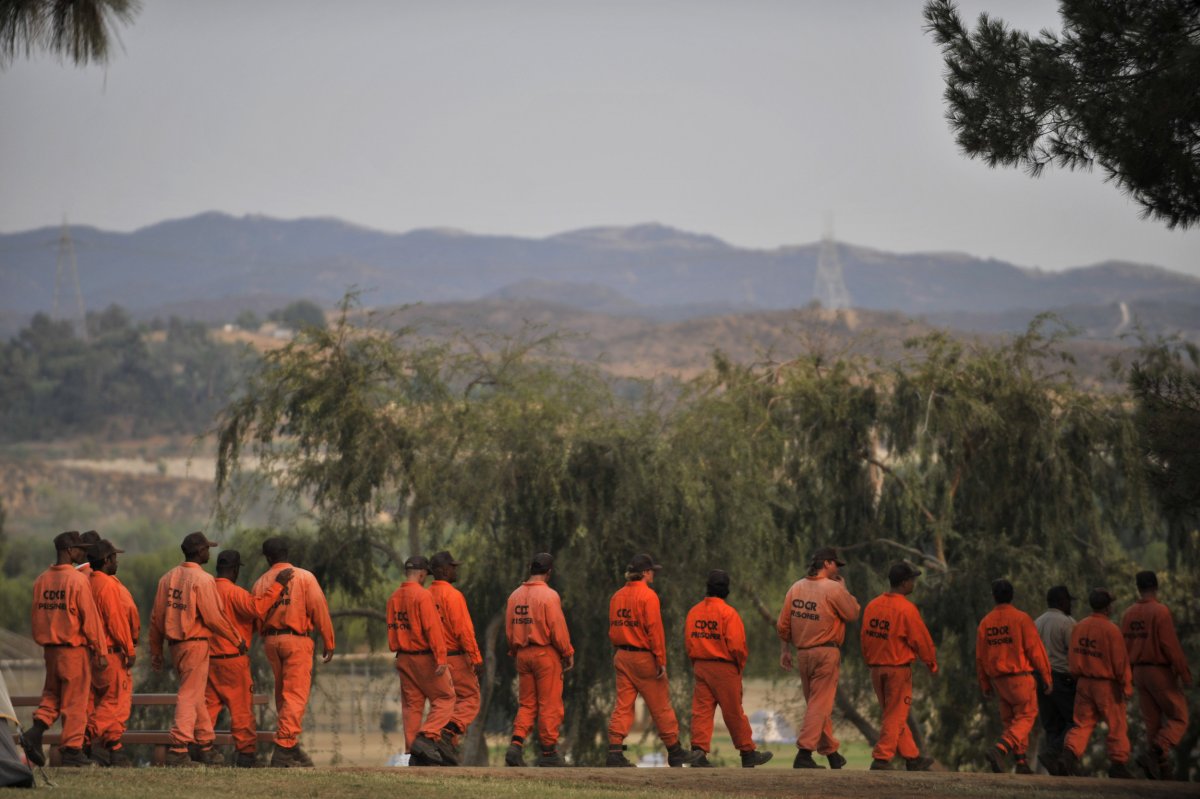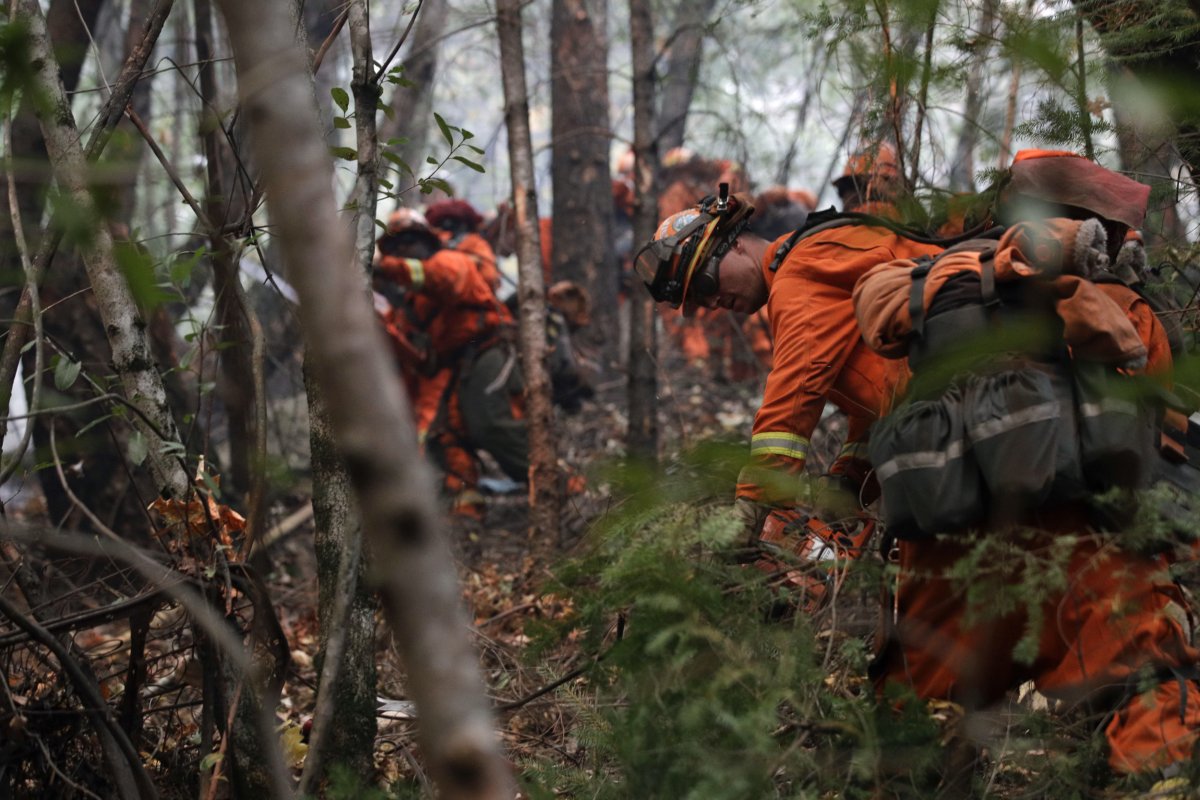On November 5, Californians rejected a ballot measure banning forced prison labor, voting instead to keep the practice legal in state prisons.
Proposition 6, which moved to eliminate the "constitutional provision allowing involuntary servitude for incarcerated persons," is projected to fail, the Associated Press reported. With 72 percent of the vote counted, 54 percent of California voters said no to the ballot measure.
The Golden State's constitution has what some describe as a "slavery loophole." While slavery is illegal in the state, California's 199,000 prisoners can be required to work jobs that earn them less than $1 an hour. Prisoners who decline these jobs can face severe consequences, such as delays in their parole eligibility, Politico reported.
One of the critical jobs that prisoners can be required to work is fighting wildfires. While salaried firefighters in California receive $74,000 on average plus benefits, prisoners receive $2 a day and an extra $1 an hour when fighting active fires.

The Anti-Recidivism Coalition, a grassroots organization working to end mass incarceration in California, led the push to remove the "slavery loophole" from the state's constitution.
Esteban Nunez, ARC's chief strategy consultant and lobbyist, spoke with Newsweek about the result, saying voters might not have understood the magnitude of the proposition because of its language.
"One of the most significant challenges was the ballot title and summary itself, which used the term 'involuntary servitude' without referencing 'slavery,'" Nunez said.
"Despite our advocacy for including 'slavery' in the ballot language to capture the full moral weight of the issue, the official language used only 'involuntary servitude.' This choice likely diluted the urgency of the measure for voters who may not fully understand the historical context and human rights implications of forced labor in prisons," he continued.
Nunez added that ARC was working to convince people that "even within a carceral system, forced labor is inhumane, counterproductive, and fundamentally wrong."
He said: "The focus here needs to be on the benefits of rehabilitation over forced labor. Studies and real-life examples show that when incarcerated individuals have the opportunity to pursue education, therapy, and voluntary work, they are far more likely to re-enter society as law-abiding, contributing citizens.
"Forced labor, however, disrupts these opportunities, perpetuating cycles of harm, poverty, and recidivism."

Nevadans also had the chance to vote on an antislavery ballot measure on Tuesday, and unlike their neighbors to the West, voters in the Silver State chose to abolish slavery in their prison system.
Nevada's Question 4, which moved to repeal the state's provision allowing slavery and involuntary servitude as punishment for a crime, passed with 61 percent of the vote, the Associated Press reported.
Alabama and Tennessee also recently removed provisions for forced prison labor from their state constitutions.
Proposition 6 was not the only prison-related measure on California's ballot. Californians also voted on Proposition 36, which moved to "increase penalties for repeated theft offenses and certain drug crimes, including some involving fentanyl," and "create a drug court treatment program for people with multiple drug possession convictions."
As Newsweek previously reported, the "tough on crime" measure received support from Californians who wanted a stronger response from their government on street drug use and what they saw as a growing homelessness problem, as Proposition 36 would enable law enforcement to act more decisively against repeat offenders and drug-related offenses.
Anne Marie Schubert, a co-chair of the coalition supporting the measure, said, "This is a resounding message that Californians are ready to have safer communities."
Do you have a story we should be covering? Do you have any questions about this article? Contact LiveNews@newsweek.com.

















:quality(85):upscale()/2024/04/24/878/n/3019466/36c5693c662965c5d1ce91.72473705_.jpg)


 English (US) ·
English (US) ·